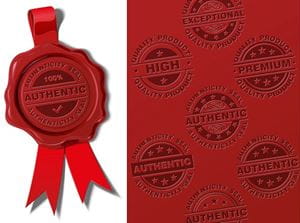Does being true to yourself make you happier?
Gaby Walker - R&D Consultant at OPP

“To thine own self be true.” (Polonius, Hamlet)
Many leaders leave much of their ‘true’ personality at home and try to present themselves at work in the way they think a leader should operate. Leaders absorb these ‘should’ models of leadership from how they see leaders behaving around them (for good or ill), as well as from hoping to emulate leaders generally held up as great: eg Churchill, Branson, etc. On top of this, over the years leadership courses have advocated different styles of leadership, each with its own advantages and disadvantages. Leaders can feel they should be all things to all men; but isn’t it better for leaders to just be themselves, natural and authentic, whether at home or in the workplace?
The culture and effectiveness of a business can be greatly influenced by the style of its most senior leaders. Unfortunately there is no ‘one size fits all’ leadership model that works for all people in all situations. A leader will often need to adapt their style or use mixed approaches to suit the situation.
Most leaders have a favourite, default leadership style. However, it is important to ensure that what seems like the best approach for the business doesn’t end up clashing with how the leader is at heart. This can result in feelings of regret, dissatisfaction, and demotivation. People who bring their authentic selves to work report that they are happier and more productive, and head up the most effective teams. Living authentically has also been found to decrease levels of anxiety and stress.
The concept of leading and behaving in an authentic way has been explored before; but interest was rekindled in 2014 when the CIPD shared a research report, “Cultivating Trustworthy Leaders”, which looks at the topic in detail.
In a similar vein, OPP’s research team has carried out a study to explore authenticity levels of leaders with the supermarket chain Tesco. The study generated a range of fascinating findings that helped explore the importance of understanding oneself as a leader and the potential outcomes of doing so. We examined relationships between Authentic Leadership and other measures including Meaningfulness of Work (how meaningful you find your work) and Happiness at Work.
Based on our dataset of 169 managers, the answer to the question “Does being true to yourself make you happier?” is...yes! Our study suggests that authentic leaders tend to find more meaning within their work, as this approach allows them to lead from the heart, speak the truth, and align their actions with their core values. All of which results in increased happiness at work.
So how can people become authentic leaders? The starting point is personal development and heightened self-awareness. Authentic leaders are conscious of their strengths, their limitations, their emotions and their purpose. Discovering your authentic style requires a commitment to developing yourself with honesty.
Tools like the Myers-Briggs Type Indicator® (MBTI®) can be extremely helpful here. The MBTI framework is simple, positive and practical, providing an effective way to increase self-awareness and gain insight into our motivations and the motivations of others.
Research by Fusco, Palmer, O’Riordan, 2011 proposed coaching models that encourage authenticity. Our current research supports this model and suggests that using psychometric tools to provide insight into emotional awareness can lead to the development of authentic leaders.